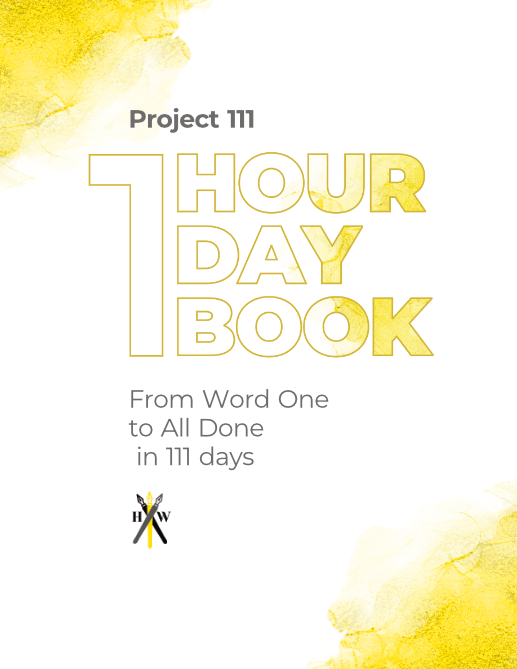Fictional languages have long been at the forefront of all things nerddom, with Star Trek and JRR Tolkien setting the bar by creating fully constructed languages.
Some superfans have delved so deep into these worlds that they go so far as becoming fluent in fictional languages, something that many people fail to do with actual earthly languages.
But what drives these people to learn a language that only a handful of other people can speak? Why did Tolkien make fantasy languages anyway?
In this article we’ll take a look at the role fictional languages play in science fiction and fantasy as well as how you can go about using fictional languages in your own writing.
Table of Contents
The Godfather of Fantasy Language

Tolkien. I don’t know if I need to write more than that, but I will.
As with so many things fantasy, Doctor Tolkien came onto the scene and set so many impossible standards. The man created Elvish and Dwarvish languages with their own dialects, alphabet, and philology. Tolkien even borrowed grammar and structures from actual languages.
Basically, Tolkien is one of the main reasons that people feel the need to include fictional languages in their writing. And we love him for it! But as writers, maybe we hate him for his overachieving mentality.
Because now we have to do something like that, right?
Well, not necessarily. Let’s look at who Tolkien was and why language was so important to him.
After Tolkien fought in the war, he worked on the Oxford English Dictionary, specifically on the etymology of Germanic words that begin with the letter “W”. After that, he became the youngest professor at the University of Leeds and spent much of his professorial life translating texts from multiple languages. He was much celebrated for his work and had a linguist mind unlike any other.
Tolkien loved language to a degree that can rarely be achieved. Knowing that, it’s no wonder why he would decide to introduce a fictional language or two into his stories.
Without Tolkien, we might not have the Klingon Language Institute, the Language Creation Society, or George R R Martin’s Dothraki language (of which he only developed a few words or phrases. The rest came from David Peterson).
Given his history and background, you can see that you don’t have to be anything like him. Figuring out how to have unique words and phrases will likely suffice for your needs. No need to become a professor in language.
Why Include an Artificial Language?

Perhaps at this point you’re thinking to yourself, “Okay, but that seems like a lot of work. Why would I want to include an invented language in my book?”
First of all, you’re right. Being a language creator takes an insane amount of work, and it’s something that the average author probably won’t even consider because writing is hard enough as it is.
But let’s talk about the benefits to combining artificial language and your next science fiction/fantasy series.
Language is a foundational part a community’s culture. In order to best understand a group of people, knowing their language, alphabet, and grammar is one of the best ways to do that.
By creating a language, you are giving life to the communities you invent. Without a distinct language, your made up people will have difficulty truly distinguishing themselves from other places and people in your story.
Tolkien’s high elvish is a great example of this. The Lord of the Rings series has multiple types of elves, and each of these peoples share an elvish language, but they have separate dialects that give them their own identity.
Additionally, including a different language in your novel can greatly add to your readers’ immersion. If you travel to another place in the world, you expect people to talk differently, even if they speak your language. So much of our own world is dictated by the way we understand language, and traveling to an entirely different world, like Middle Earth, will bring with it the expectation of different languages.
The world you create will feel more lived in. Your characters will feel more like they come from somewhere. And people will be interested in the languages, maybe even to the point of learning them fluently (or fleshing them out into a full language for your novel’s HBO adaptation).
Imagine your immersion in The Lord of the Rings movie if instead of using the black speech, Gandalf just quoted in the common tongue instead. It just wouldn’t carry the same weight. Using these languages in your novel can greatly increase your reader’s immersion while bolstering almost every aspect of your worldbuilding.

Our 84-page book planner and 111 day writing course.
How Do You Do It?

Well, I should first say that you don’t need to be a linguist or language creator to maximize the effect of fictional languages in your stories.
Remember that Tolkien didn’t include every Elvish word or part of black speech that he knew in the book. He had phrases and conversations, sure, but you don’t need to be fluent in it to enjoy it as a reader.
The first step to including a fictional language in your writing is to love language itself. As a writer, I’m sure you have an affinity for whatever language you write in, and you understand the ins and outs that make it possible to write in an engaging way.
Take that love, and try to apply it to other languages. See what’s out there. What language sounds loveliest to you? What’s scariest? And obviously a whole language can’t be scary or lovely, but find what combination of sounds get your creative juices flowing.
If you haven’t been able to experience many languages in your casual life, you can easily take to the internet. I find myself watching dialect videos of Irish people, or listening to the differences between German and Dutch. YouTube is a treasure trove of language videos.
Maybe you could start by watching this video of two polyglots speaking to each other.
Find the languages that pique your interest and then take to the laboratory!
Tolkien didn’t come up with his languages from thin air. Dwarvish came from a Hebraic background. Tolkien liked the way that Hebrew was written in consonants and applied that to Dwarvish. He also felt like there were some cultural similarities between the two groups, given their displacement.
Elvish was based on Welsh and a few other languages. Tolkien found what he liked about different languages and conjoined those pieces into his made up languages.
In your own writing, you don’t have to flesh out every part of the language. You don’t need to know all the grammar or have an extensive vocabulary. Your words should just have weight and provide a feeling for what the speaker’s people are like.
Frank Herbert based Dune’s Fremen on Arabic cultures and that influence went into the language as well. This approach could become problematic, depending on your sensitivity, but that’s a tried method to produce a feeling based on a fictional language. Given our association between Arabic countries and deserts, an Arabic-sounding language will remind us of a desert planet.
Now, if you do want to go all in and fully develop a language, prepare to spend a lot of time and effort. It would also help to be a linguist who has the understanding of multiple languages and how their grammar works.
You’ll first want to establish the sound of your language. Do you want it to be smooth and pretty or hoarse and choppy? Then you’ll want to establish the efficiency of the language. Some languages, like Chinese, can convey a lot of meaning in very few words. Other languages, like Japanese, use lots of words to say something with the same meaning.
Usually you can tell the efficiency of a language by how fast the people speak it: faster is inefficient, slower is efficient. If you want to create a very efficient language, you will have to come up with connotations and nuances that your characters are familiar with.
Once you’ve done this, figure out how you’d like your grammar to be set up. You can try to have it follow English grammar, but (1) it’s difficult to codify English grammar, and (2) a one-to-one language is weak sauce; you can do better!
Conclusion

First of all, remember that names and language have power. Maybe in your fantasy series you’ll include a mystical power around them, like the nostalgic “brasingr”, but I’m talking about the evocation of emotion and history by a name like “Minas Morgul” or “Muad’dib”.
These names carry with them an air of profundity because of the way the authors used fictional languages. The goal of your fantasy language shouldn’t be that colleges will eventually teach your language or that people will attend conventions where they speak it (though you can definitely strive for that).
Your goal should be using fictional languages to create a sense of history and culture. Choose your names wisely. Offer a feeling of cohesion.
You can do this by paying attention to unfamiliar languages or by studying ones you know that aren’t your native language. Find out what you like, how different words make you feel, and try to recreate sounds into writing.
You definitely won’t have to understand your fictional languages to the point where you could write the whole book in them (because no one could read it), but you can include phrases, words, and names that hint at the larger language.
Remember, Tolkien already went overboard so you don’t have to. Tasteful inclusions will go a long way to immersing your reader in your novel. Because of the deep connection between culture and language, fictional languages are one of the best ways to begin worldbuilding.
For more tips and tricks to help you write the best you can, check out more of our articles at Habit Writing.
gavinwride
Gavin is a fantasy author, short story enthusiast, and nature lover. When he’s not reading, writing, or exploring the outdoors, he is likely playing games. His board game collection is probably too big for someone living in a small apartment, and he has enough yet-to-be-played video games to fill a lifetime. His favorite book is "The Name of the Wind". His favorite author is Edward Abbey. His favorite game is "Dark Souls III", and he’d be more than happy to spend the day talking about lore, bosses, and game mechanics.
Our 84-page book planner and 111 day writing course.
